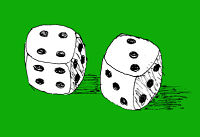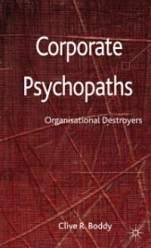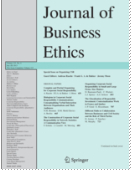Indexes - all Resources

Differences between psychopathy and other personality disorders: evidence from neuroimaging. (2011)
"ICD-1O and DSM-IV-TR diagnostic guidelines do not list psychopathy as a distinct psychiatric entity. However, there are significant overlaps between psychopathy and DSM-IV-TR Cluster B personality disorders. Sagari Sarkar (1), Ben S. Clark (2) & Quinton Deeley (3). 1. Institute of Psychiatry, King’s College London. 2. Springs Unit, Cygnet Hospital Harrow, London. 3. Institute of Psychiatry, King’s College L...
Written by: Sargar, Clark and Deeley.
Read more
Oxytocin promotes human ethnocentrism. (2011)
Oxytocin creates intergroup bias because oxytocin motivates in-group favoritism and, to a lesser extent, out-group derogation. These findings .. suggest that oxytocin has a role in the emergence of intergroup conflict and violence. De Dreu, C.K.W., Greer, Lindred L. Gerben A. Van Kleef, Shaul Shalvi & Michel J.J. Handgraaf. Department of Psychology, University of Amsterdam. Published in Proceedings of the Na...
Written by: De Dreu, Greer et al. "
Read more
Testosterone and high finance do not mix: so bring on the women. (2011)
"Gender inequality has been an issue in the City for years, but now 'neuroeconomics' is proving the point beyond doubt: hormonally-driven young men should not be left alone in charge of our finances… Tim Adams, The Observer, Sunday 19 June 2011 Gender inequality has been an issue in the City for years, but now the new science of 'neuroeconomics' is proving the point beyond doubt: hormonally-driven young men should no...
Written by: Adams, Tim.
Read moreBias, blindness and how we truly think, parts 1-4. (2011)
“More often than not, risk-takers underestimate the odds they face and … believe they are prudent, even when they are not.” Daniel Kahneman, professor emeritus of psychology and public affairs at Princeton University's Woodrow Wilson School; Nobel prize winner. Written for Bloomberg.com, 2011. “The evidence suggests that an optimistic bias plays a role - sometimes the dominant role - whenever people or instituti...
Written by: Kahneman, Daniel
Read moreThe Social Animal: The Hidden Sources of Love, Character, and Achievement. (2011)
"People ... make up stories to explain their own actions even when they have no clue about what is happening inside. The most powerful among us swat away doubt and choose upsides because not having answers feels so uncomfortable and potentially threatening. David Brooks, senior editor at THE WEEKLY STANDARD, contributing editor at NEWSWEEK. Formerly a reporter and editor at THE WALL STREET JOURNAL, he's had articles in THE NEW...
Written by: Brooks, David.
Read moreCorporate psychopaths: Organisational destroyers. (2011)
“..as the recent global financial crisis has highlighted…the conscience-free behaviour of a small group of corporate (psychopaths) can potentially bring down the entire western system of business. Clive Boddy, Visiting Professor, University of Lincoln Pub. Palgrave Macmillan Publisher’s preview “Although they comprise only a small percentage of employees and senior managers, corporate psychopaths have ...
Written by: Boddy, Clive.
Read moreInsurance and procedural ethics: Lessons from the Deepwater Horizon explosion. (2011)
Given insurers’ highly significant role… it would be relevant to reflect on their possible catalytic role … on the ethical conditions under which project risks are managed. A. A. Kyrtsis, University of Athens Journal of Business Ethics, 103(1), 45-61. Insurance of techno-organizational ventures and procedural ethics: Lessons from the Deepwater Horizon explosion. "Insurance underwriting for techno-organizational projects�...
Written by: Kyrtsis, A. A.
Read more
The introduction of a non-traditional and aggressive approach to banking: the risks of hubris. (2011)
"The study highlights the risks of hubris, in that media praise and early successes can increase the pace of adoption of innovations which offer short-term gains but are detrimental in the long term. Dena Y. Lawrence, Federica Pazzaglia & Karan Sonpar, all of the Smurfit School of Business, University College, Dublin, Ireland. Journal of Business Ethics 2011; 102: 401-420 This study integrates institutional ...
Written by: Lawrence, Pazzaglia and Sonpar.
Read more
Detecting linguistic traces of destructive narcissism at-a-distance in a CEO’s letter to shareholders. (2011)
"Through selective analyses of letters to shareholders the authors explore the potential of this important form of corporate communications to provide linguistic traces of destructive narcissism. Amernic, J: Joseph L Rotman School of Management, University of Toronto Craig, R: School of Accounting and Finance, Victoria University, Melbourne, Australia Journal of Business Ethics (2011) 101:563–575<...
Written by: Amernic, J & Craig R.
Read moreCorporate psychopaths, bullying and unfair supervision in the workplace. (2011)
“26% of bullying is accounted for by 1% of employees - those who are Corporate Psychopaths. Clive R Boddy Professor of Leadership and Organisation Behaviour, Middlesex University. Journal of Business Ethics, May 2011, Volume 100, Issue 3, pp 367-379 This article reports research among 346 senior white-collar employees from a variety of organisations in Australia “that clearly links the presence of C...
Written by: Daedalus admin
Read more









